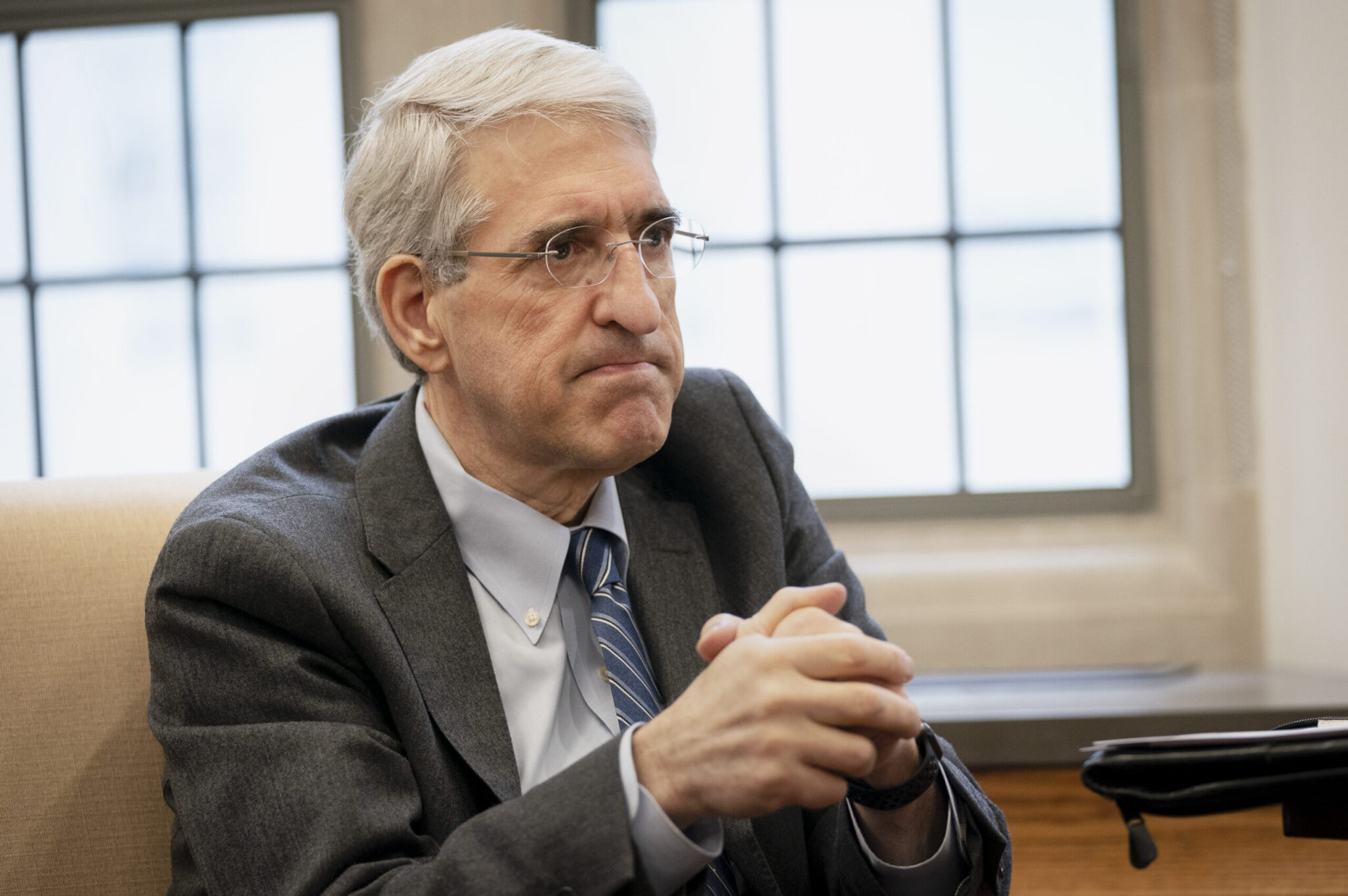Congress drops Salovey from antisemitism hearing
University President Peter Salovey will provide a transcribed interview to Congress, leaving the presidents of Rutgers University and Northwestern University –– where student protest organizers and University administrators have reached agreements –– to give testimony.

Tim Tai, Senior Photographer
University President Peter Salovey will not testify before the House Committee on Education and the Workforce on May 23 about campus antisemitism, per a Monday afternoon press release from the committee.
Instead, Salovey will be required to appear for a transcribed interview. In his place, Committee Chairwoman Rep. Virginia Foxx called upon Rutgers University President Jonathan Holloway GRD ’95 and Northwestern University President Michael Schill LAW ’84 to replace Salovey and University of Michigan President Santa Ono, who has also been removed from the May hearing. At both Rutgers and Northwestern, student protest organizers have reached agreements with University administrators on their demands.
Salovey accepted the initial invitation to appear for the hearing, entitled “Calling for Accountability: Stopping Antisemitic College Chaos.” He confirmed to the News that he will also comply with Congress’s new request for a transcribed interview.
“I am committed to cooperating with the committee, and I look forward to engaging with the committee during the interview at a later date,” Salovey wrote to the News.
Transcribed interviews are closed-door interviews with witnesses that are transcribed in writing in order to relay information to Congress.
In the press release, Foxx wrote that “Yale and Michigan are by no means off the hook” but that she is concerned about universities where administrators have yielded to student protesters.
“Over the last several days, the presidents of Northwestern and Rutgers have made shocking concessions to the unlawful antisemitic encampments on their campuses,” Foxx wrote. “They have surrendered to antisemitic radicals in despicable displays of cowardice.”
On April 29, student organizers at Northwestern agreed to tamp down their protests in several ways, including taking down all tents except one aid supply tent. In exchange, administrators committed to reestablish a university advisory committee on investments and create a channel for student engagement with the Investment Committee of the Board of Trustees.
Three days later, after student organizers at Rutgers scheduled a protest intended to disrupt final exams, the University postponed all exams and announced an agreement with the organizers. In exchange for students dismantling their encampment and agreeing to cease further disruptions and abide by Rutgers policies, the University agreed to 8 of 10 student demands including creating an Arab Cultural Center, accepting at least 10 displaced Gazan students to the school and providing amnesty to those who participated in the protests.
No such compromises have been reached at Yale, where police have made 53 arrests associated with the pro-Palestinian protests and have cleared two separate encampments.
Some Jewish donors, community members and committees have condemned the concessions made by Northwestern and Rutgers, maintaining that the agreements cater to students who disobeyed university policies and ignore safety concerns of Jewish students.
Rutgers President Holloway has held several roles at Yale, including as a graduate student, professor, head of Grace Hopper College, chair of the Department of African American Studies and first African American dean of Yale College. Holloway was named on a September shortlist by the News of eight possible candidates to become Yale’s next president.
University of California, Los Angeles Chancellor Gene Block, the third president initially called as a witness for the hearing, will still testify on the original May 23 date. UCLA has been a focal point of nationwide attention to student protests after a counterprotesters violently attacked and launched fireworks at students in an encampment there on April 30.
The Committee did not call Brown University President Christina Paxson to testify, despite the rare agreement reached there between student organizers and University administrators committing the Brown Corporation to hold a vote on divestment from Israel-affiliated companies.
In a similar hearing on campus antisemitism in December, Claudine Gay, Liz Magill ’88 and Sally Kornbluth, respectively the presidents of Harvard University, the University of Pennsylvania and the Massachusetts Institute of Technology, appeared before the Committee. After providing equivocating answers to a question asking whether “calling for the genocide of Jews” would violate their campus policies, Gay and Magill both lost their jobs amid intense backlash nationwide.
More recently on April 17, Columbia University President Minouche Shafik appeared before Congress, differentiating herself from her peers by taking a harder stance against antisemitism, sparking intense backlash from Columbia students.
The Committee will live-stream the hearing on YouTube.







